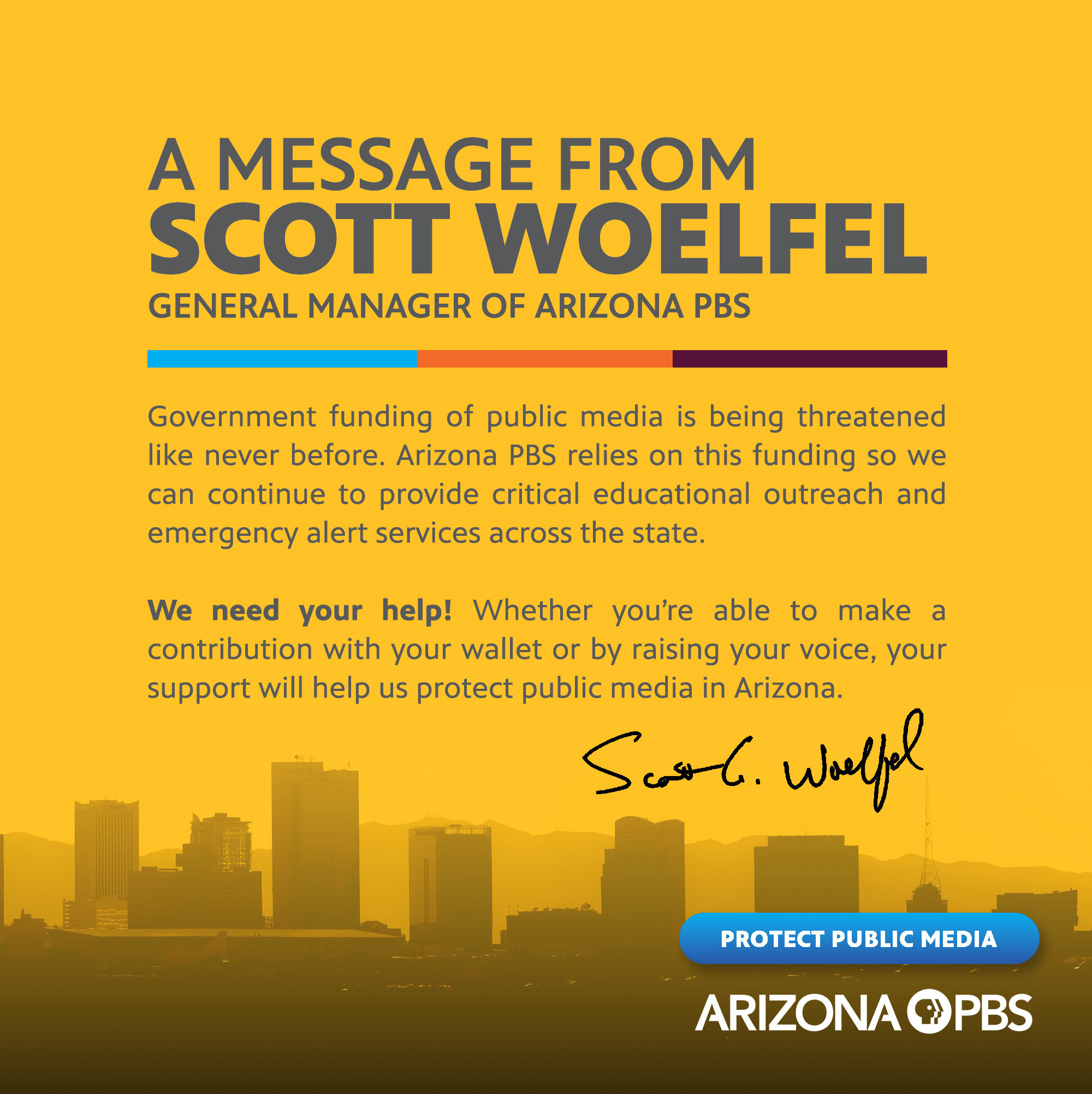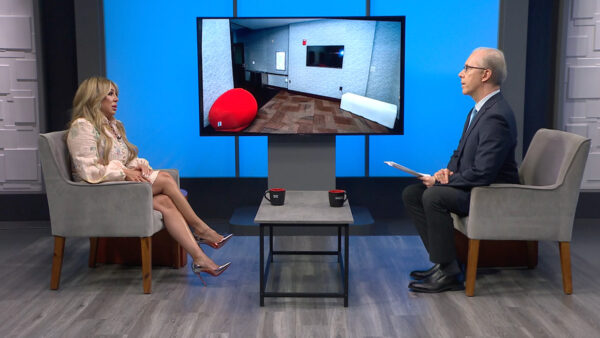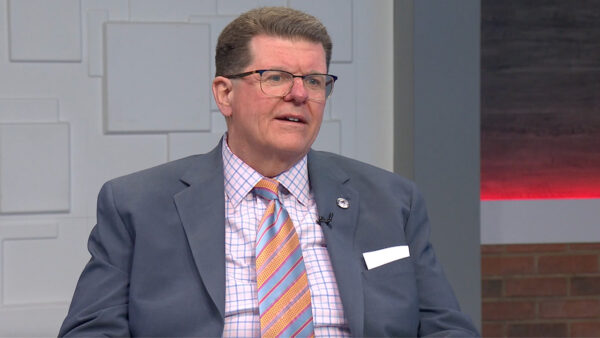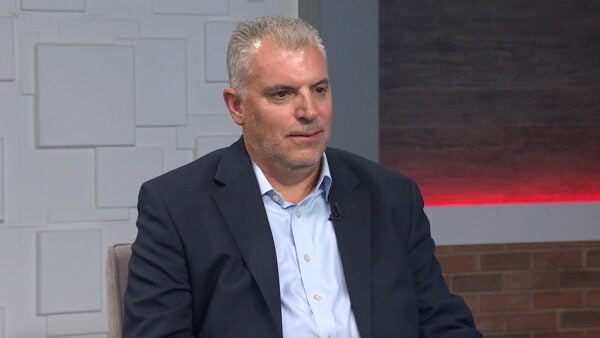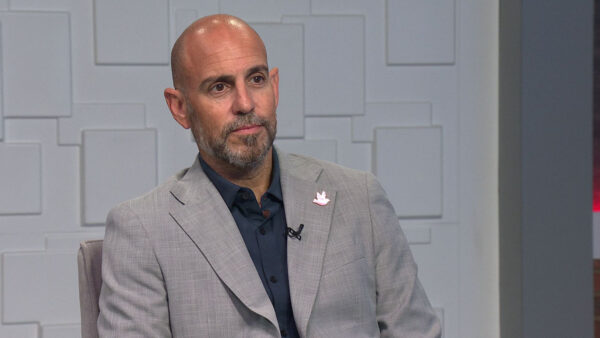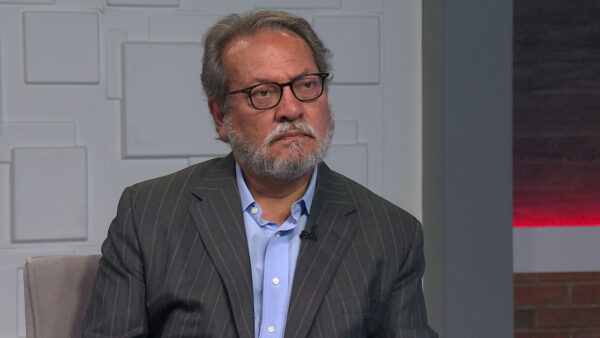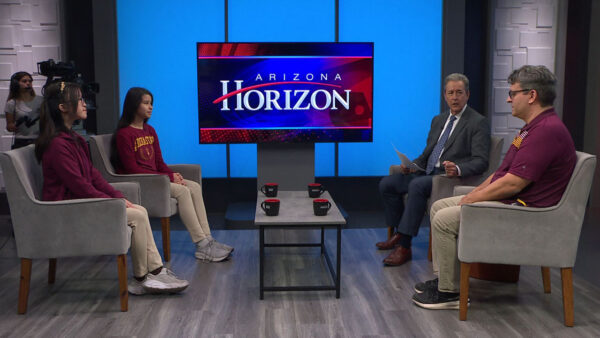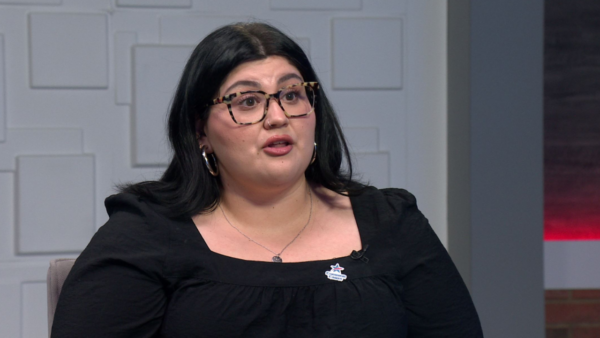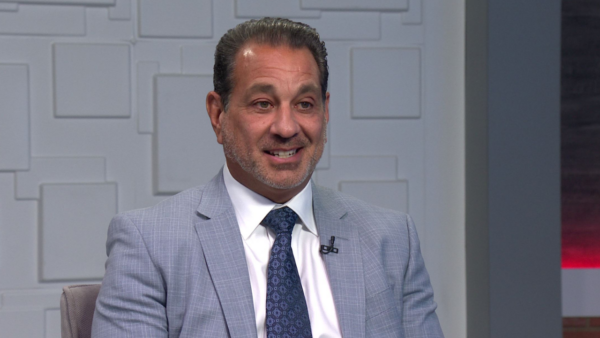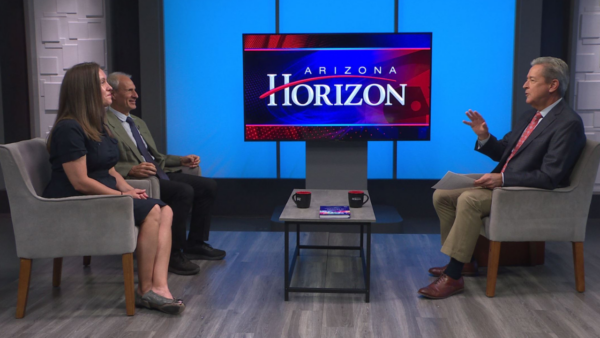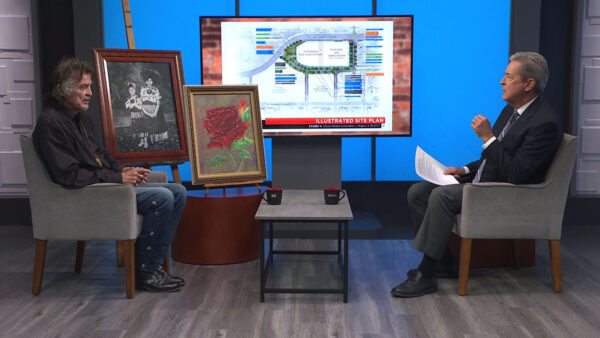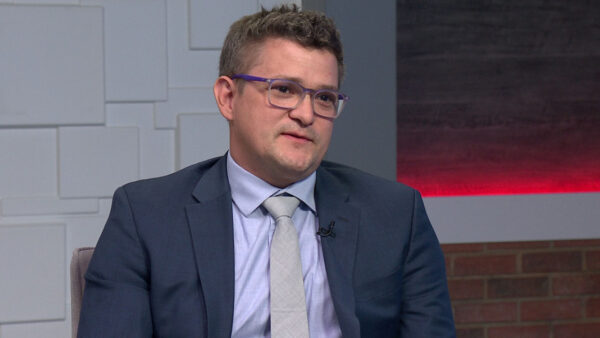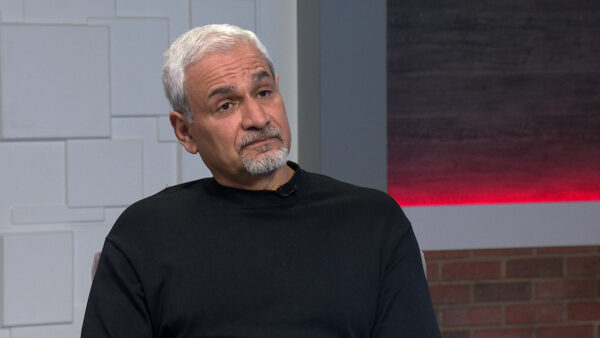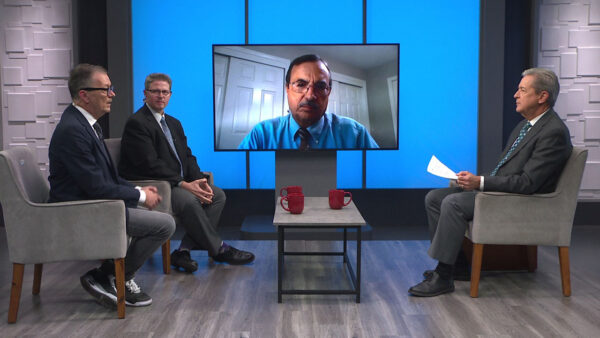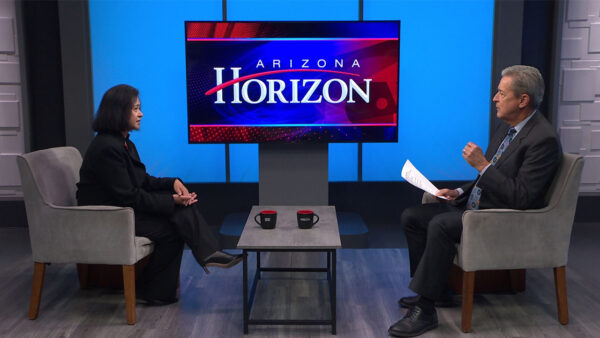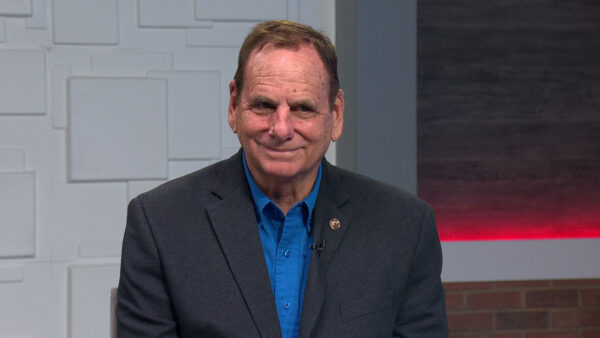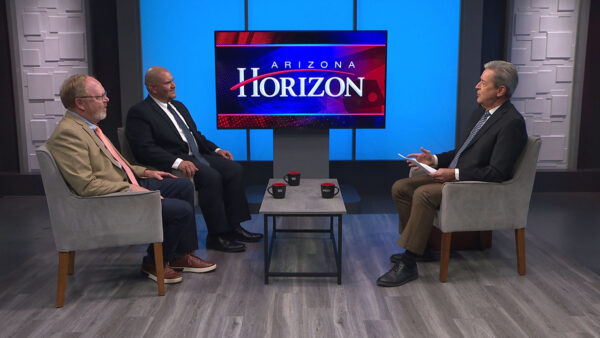The Arizona State Supreme Court is holding a special hearing at the University of Arizona regarding a lawsuit challenging Arizona’s Medicaid expansion. Howard Fischer of Capitol Media Services will provide a live report from Tucson.
Ted Simons: Good evening and welcome to Arizona Horizon. I'm Ted Simons. The state Supreme Court traveled to the University of Arizona today for oral arguments on a lawsuit against the state's expansion of Medicaid. Howard Fischer of capital media services covered the hearing and joins us live now from Tucson. Good to have you here, and what exactly did the Supreme Court hear today?
Howard Fischer: They heard the first of what could be two arguments. In 2013, the legislature voted to expand Medicaid to cover people wonder 138% of the Federal poverty level, and to levy what the governor calls an assessment on hospitals to pay for much of that. Well, the dissident lawmakers say it's really a tax, and under the constitution you need a two-thirds' vote for a tax increase, and it didn't get the two-thirds' vote, so the dissident Republicans went to court and said, this cannot take effect. Where we are now is, is that the legislators are saying, you know, to the Supreme Court, you know, let us Sue. Let us go in and challenge this. The Governor is saying, you don't have standing to Sue. The only people that have standing to Sue are the hospitals that are affected by the tax, or levy, or assessment, or whatever you want to call it, and if only the hospitals can Sue, the legislators can't. Here's what gets real interesting. Chief Justice scot bails pointed out the hospitals have no incentive to Sue because they structured the assessment in such a way that the hospitals will be getting more back in compensated care from people who are ensured than, than from the assessment, and he said why do we have to wait for the hospital since there is a constitutional issue here?
Ted Simons: And again, this was a Supreme Court judge initially dismissed this in February, and then the court of appeals came along and reversed that decision, and that is why the Supreme Court is hearing this now, why equity?
Howard Fischer: Exactly. And what, what will, we'll have, is a significance on decision and standing. Case goes away. Medicaid expansion goes on, if they decide lawmakers have standing, to Sue over whether they need a two-thirds' vote, goes back to the trial judge, and then they hear questions, is it a tax, or as the governor says, is it an assessment for regulatory purposes, and then we'll be back up to the Supreme Court, perhaps, in another year.
Ted Simons: Have we seen in the past this, this challenge or this question as to what is a tax and what is an assessment?
Howard Fischer: We have not seen anything quite like this because of the fact that, that lawmakers have, essentially, given state agencies the power to levy assessments on a simple majorities. What they have done is left it up to the agency to decide how much to assess. Real estate department, department of environmental quality does assessments, so they can go ahead and run the agency. The Governor's argument is this is the same thing, that it's not the legislature that's levying this. The legislature authorized Tom Bentlock, head of the Arizona cost containment system, to make an assessment on hospitals, to decide which hospitals pay, and which hospitals don't pay, and she said that makes it an assessment rather than a tax. The argument of, of Senate President Andy Biggs, who was down here today, is, is you can call it what you want. It's involuntary, and it's being assessed, and it's going, essentially, into the general fund to fund Medicaid expansion, and he said that makes it a tax.
Ted Simons: And I know that the lawmakers are, are concerned because what they say is happening with this situation, is, is you can get by the two-thirds' vote if you vote to get by the two-thirds' vote. And they say that's not kosher. Whereas the Governor's side is saying, that you are suing because you lost a vote. Very interesting arguments.
Howard Fischer: Well, it is, and one of the interesting things that happened, is Justice Robert Brutinel was testing the Governor's lawyer, and he said they don't have standing to Sue because they were not damaged. Only the hospitals, and the Justice said well, excuse me, Mr. Berg, what if it was the majority of lawmakers saying that red headed lawmakers cannot vote on this issue, on the assessment/tax? And Tim said well, wouldn't matter. The red head lawmakers won have a right to Sue because it will be the hospitals that are damaged. I think that that did not sit well with the Justice in terms of saying, you know, do lawmakers have a right? Got to remember that proposition 108 was approved in the '90s because voters said that they wanted a two-thirds' vote for anything that's a tax. They were tired of taxes enacted by a simple majority. And so Cristina Sandford, the attorney for Goldwater say, you are not only infringing on the rights of the lawmakers, but on the right of the opinion, which is entitled to that protection.
Ted Simons: Ok, before we let you know, describe the hearing -- first, why was it held in Tucson and describe the hearing, and the Governor was down there, President Biggs down there and anyone else of note attending?
Howard Fischer: No, not really. Those were really the two, two folks of any note, and you did have protesters down here who, who did not like the whole Medicaid expansion, and such. The reason that we were down in Tucson is the Supreme Court takes its cases on the road from time to time. They have done this at asu law school, at the u of a, the Phoenix college of law, and done it at high schools. The idea is to, is to give folks a chance, who don't get to come up to Phoenix and sit in the courtroom, to see what happens. How does this happen? And to see the fact that this is a very -- what they call a hot bench, that it's not like the Justices go ahead and say, well, just tell us what you want. They ask a lot of very pointed questions, and that's really the key, and it's educational for the students at the college of law to see that.
Ted Simons: All right, we'll see where it goes, Howie, good to have you here and thanks for joining us.
Howard Fischer: Glad to be here.
Howard Fischer:Journalist, Capitol Media Services;
